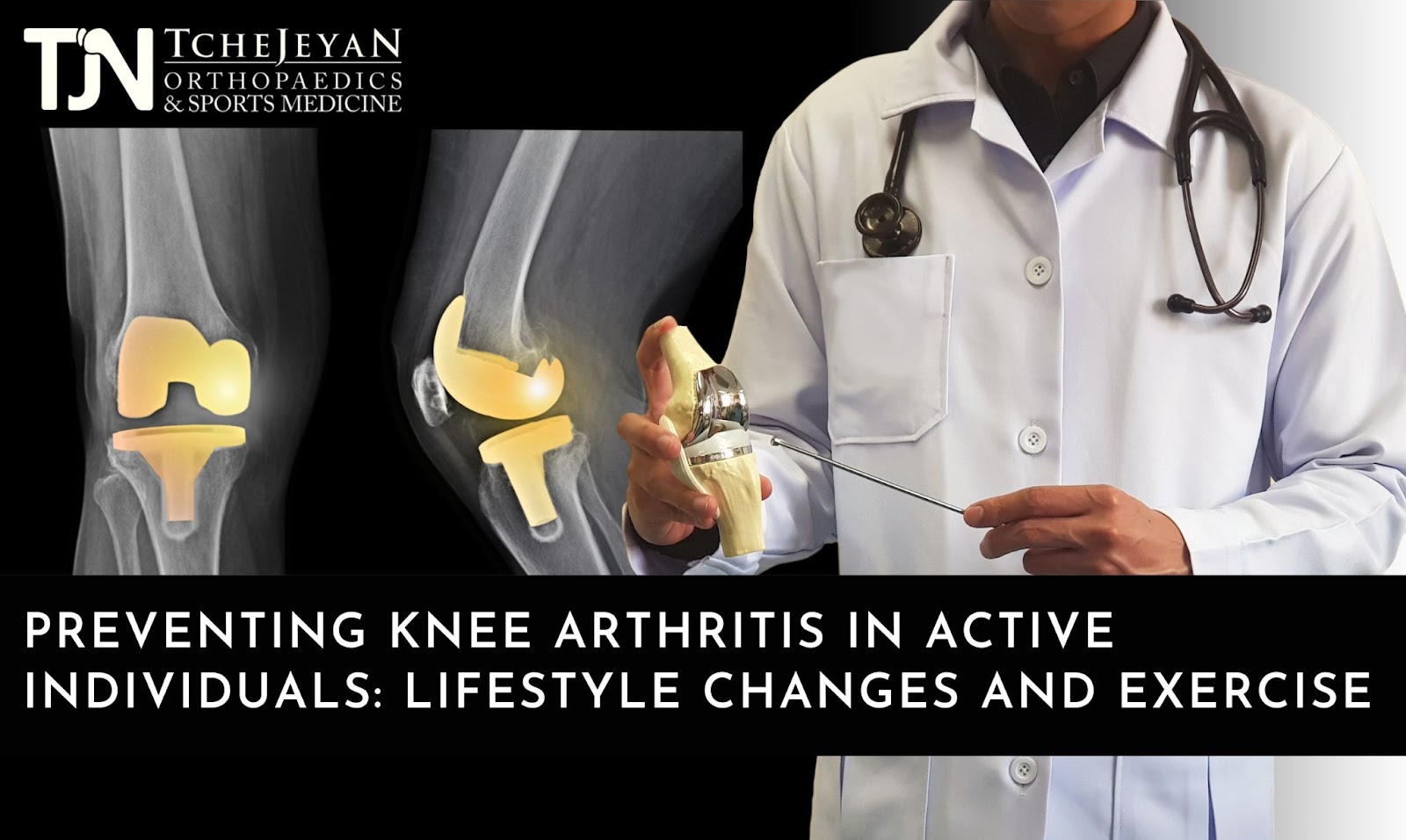Preventing Knee Arthritis in Active Individuals: Lifestyle Changes and Exercise
You rely on your knees to keep you moving when you lead an active life, whether playing sports, working a manual labor job, or enjoying activities like walking, hiking, and other outdoor pursuits. However, as you age, all that activity over the years takes a toll on your body. One common ailment that people experience as they age is arthritis. Arthritis is the degeneration of cartilage in the joints, which can cause pain, stiffness, and limitations in mobility. When you are not only unable to enjoy activities you used to enjoy but may find it difficult and painful to do even simple tasks like walking upstairs or playing with the dog, your quality of life can suffer.
If you have led an active life and are concerned about developing arthritis, the good news is that there are some lifestyle changes and exercises you can employ that can help prevent knee arthritis and maintain the health of your knees over time. Here are some strategies that can safeguard your knee health so you can continue enjoying activities you enjoy.
Maintain a Healthy Weight
Maintaining a healthy weight is one of the most significant factors influencing knee health. With every step, you place about 1.5 times your body weight on the joint. When you walk up or down the stairs, the weight can be about four times your body weight. This means that additional weight places additional stress on the knees, increasing the risk of developing arthritis.
If you decrease your level of activity and gain weight as you age, your muscles are no longer able to absorb and cushion the impact, shifting the impact to the knee joint itself. Reducing the strain on your knee joints by achieving and maintaining a healthy weight is critical.
Regular Exercise
Engaging in regular physical activity plays a crucial role in preventing knee arthritis. Exercise helps strengthen the muscles around the knee joint, providing better support and stability. In addition, the joints are lubricated by synovial fluid, not blood flow. Movement keeps the synovial fluid moving to your joints.
Here are some exercises that can help protect your knees:
- Low-impact Aerobic Activities: Opt for exercises that are easy on the joints, such as swimming, cycling, or using an elliptical machine. These activities provide cardiovascular benefits without subjecting your knees to excessive stress.
- Strength Training: Strengthening the muscles around your knees is vital for stability. Include exercises that target the quadriceps, hamstrings, and calf muscles, as they play a significant role in knee support. Leg presses, lunges, and squats are excellent options for strengthening these muscle groups.
- Flexibility and Range of Motion Exercises: Regular stretching can improve flexibility and maintain the full range of motion in your knees. Incorporate yoga or tai chi exercises that will enhance flexibility and reduce the risk of injury.
- Balance and Stability Training: Incorporate exercises that improve balance and stability, such as standing on one leg or using a balance board. These exercises enhance proprioception, reducing the chances of falls or awkward movements that could damage your knees.
- Proper Technique and Injury Prevention: Adopting proper technique during physical activities can help protect your knees from injury and minimize the risk of developing arthritis. Whether running, jumping, or participating in sports, be mindful of your body mechanics. Using proper form and technique reduces the strain on your knee joints, preventing unnecessary wear and tear.
- Preparation: It’s also essential to take precautions to avoid knee injuries. Always warm up before exercising, wear appropriate footwear, and gradually increase the intensity and duration of your activities. If you participate in high-impact sports or activities, consider using protective gear such as knee pads or braces to provide extra support and stability.
Pay Attention to Your Body and Seek Medical Care When Appropriate
Paying attention to your body and recognizing its limits is crucial in preventing knee problems. If you experience pain, swelling, or discomfort in your knees, don’t “muscle” your way through the pain. Rest your knee and, if warranted, seek medical attention. Ignoring warning signs often leads to further damage or more severe injuries, increasing the risk of developing knee arthritis. A qualified orthopedic specialist can diagnose underlying issues and provide appropriate guidance and treatment options.
Taking proactive steps to prevent knee arthritis is essential for active individuals who wish to maintain mobility and independence. Prevention is crucial, but if knee problems arise or persist, contact Tchejeyan Orthopaedics and Sports Medicine in Thousand Oaks, California. Dr. T is an orthopedic surgeon specializing in knee problems, especially those that develop in athletes and others who lead active lifestyles. With an accurate diagnosis and the proper treatment, you can return to the activities you love.


